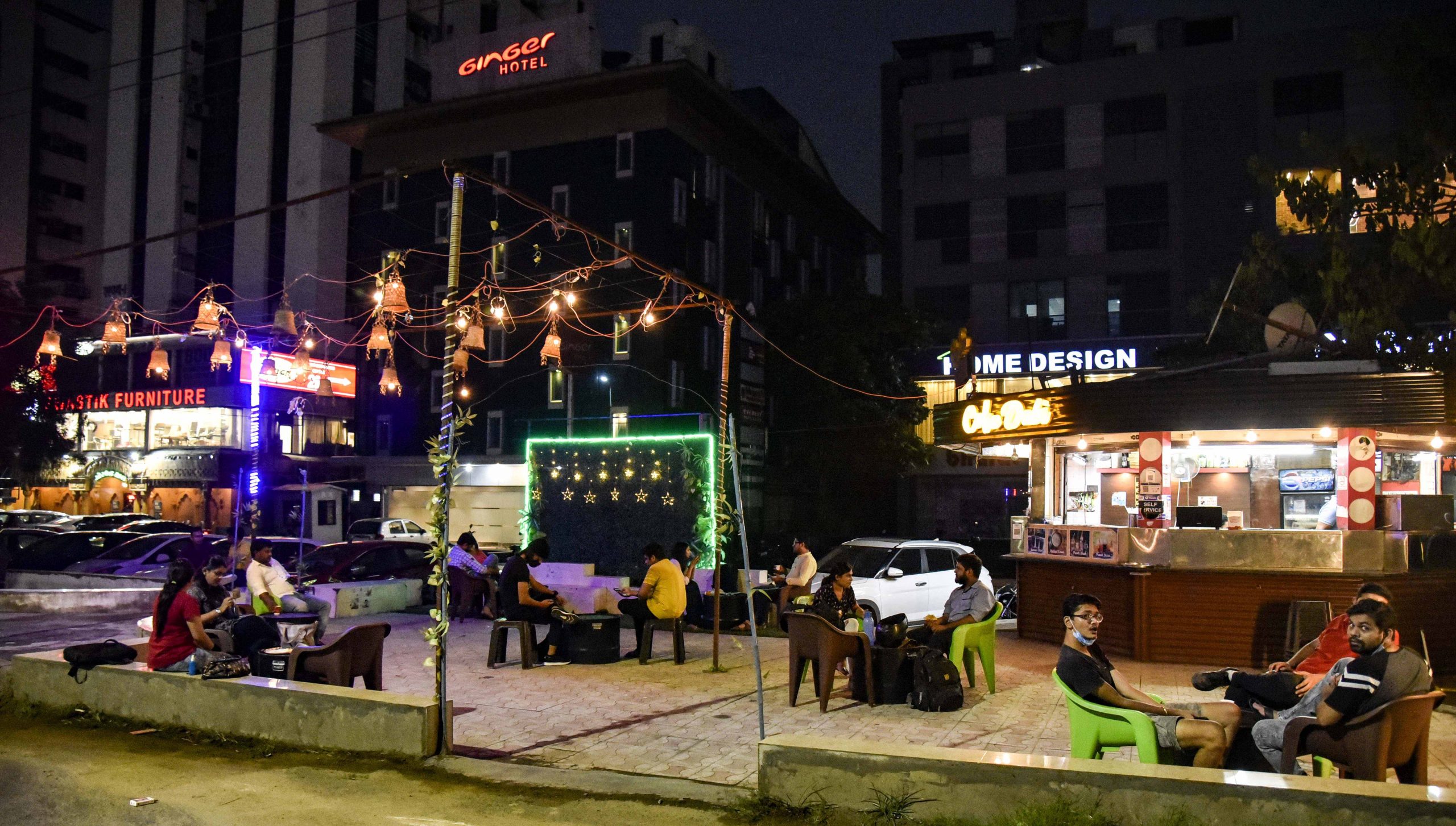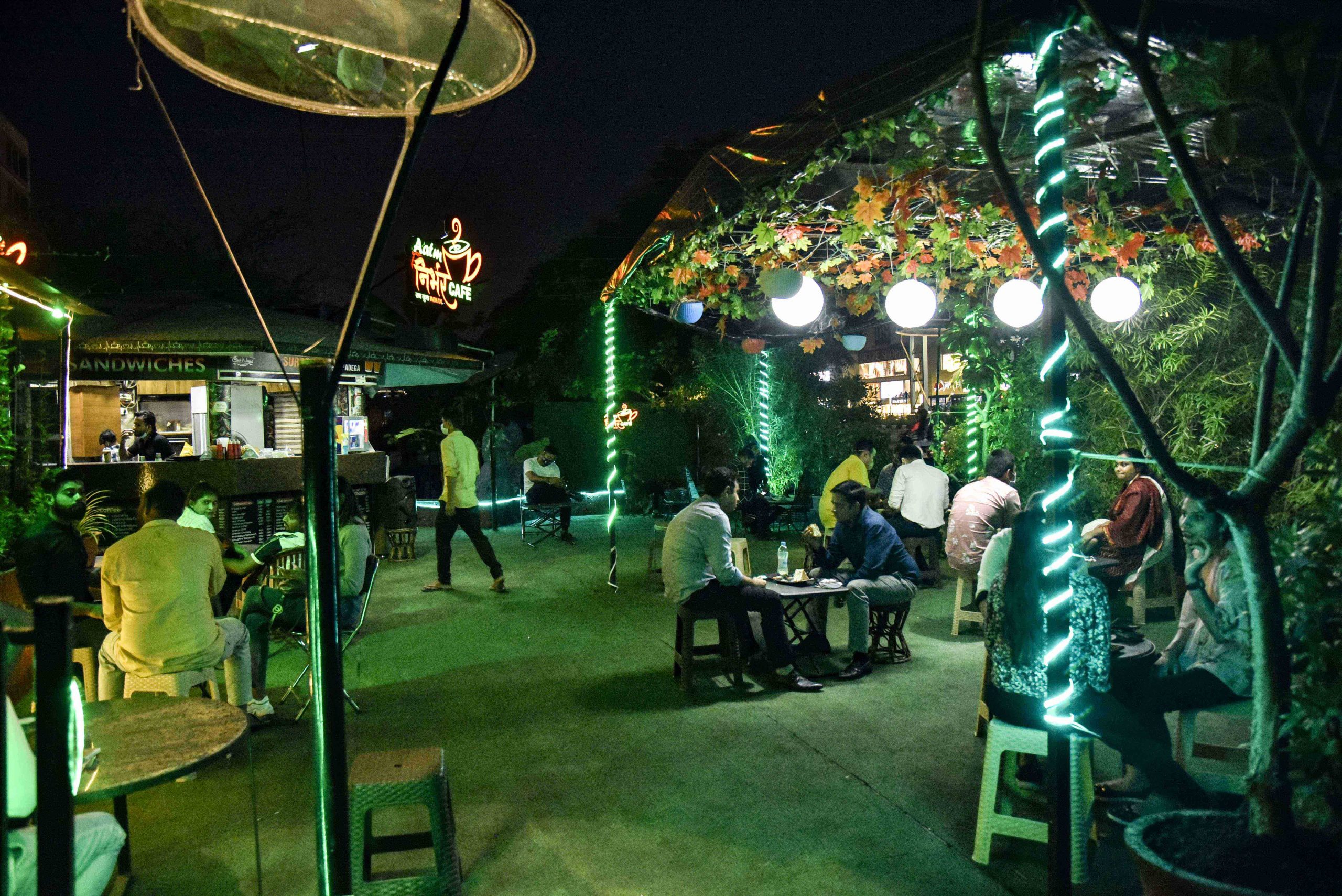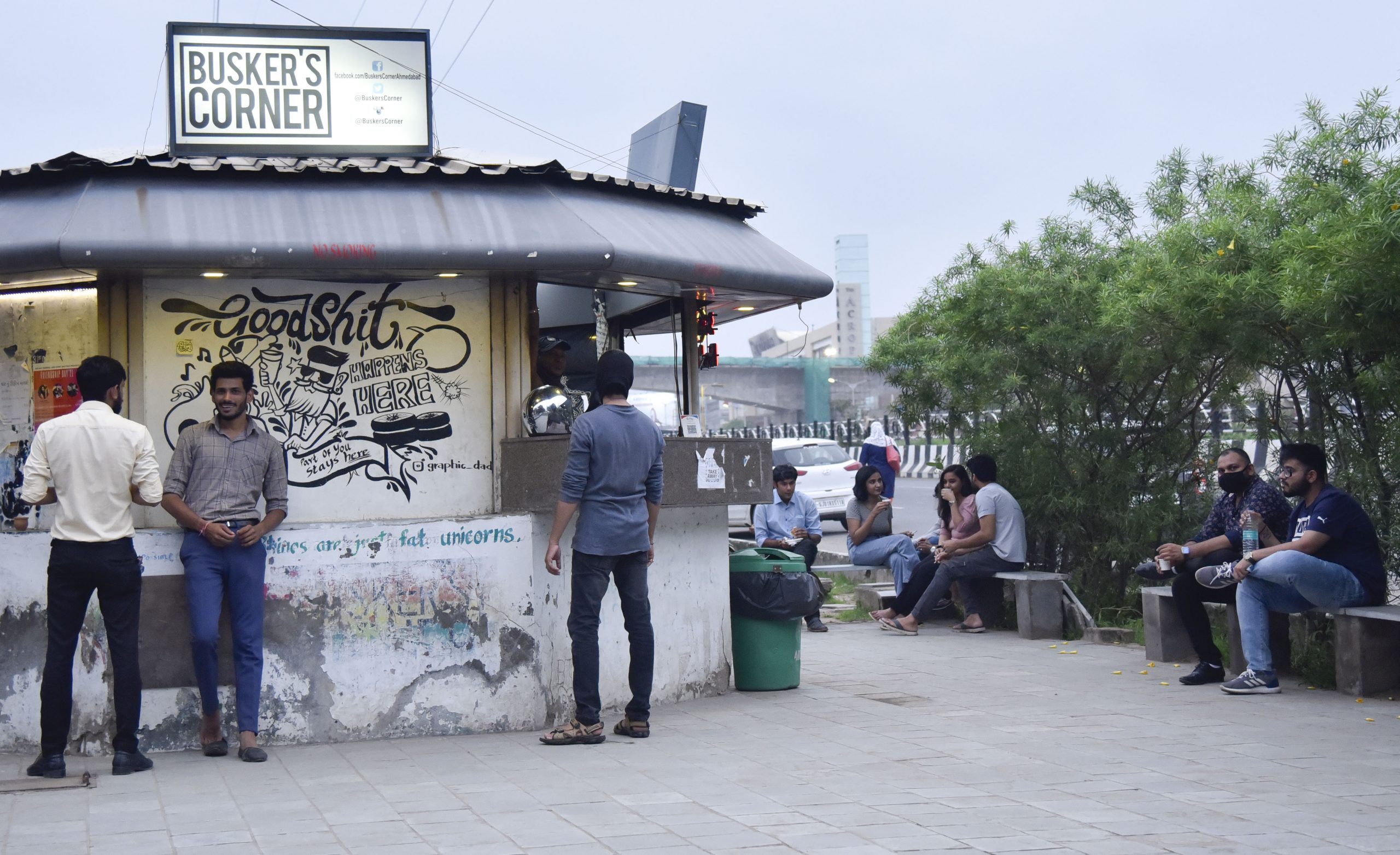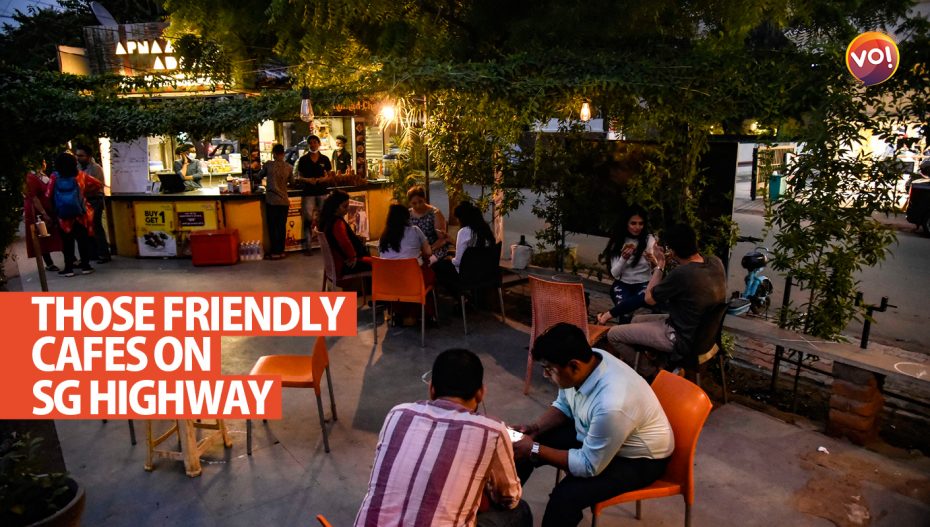The cafes on SG Highway are a quick and easy measure of Ahmedabad’s mojo levels. Lining the three kilometer stretch from Thaltej to Bodakdev, these outdoor joints are buzzing again, after three months of partial lockdown. The ‘takeaway only’ period saw the cafes operating at minimal capacity, with customers picking up the occasional cups of tea and coffee and carrying them to nearby bus stands and park benches. Now a stroll down the service road running parallel to the highway shows the seats in the cafes are laid out and well occupied again. “Our sales are now Rs 12,000 per day,” says Shubh Joshi, owner-manager of Apna Adda, one of the more popular cafes. “We pay the Ahmedabad Municipal Corporation (AMC) a monthly rent of Rs one lakh. Once our sales reaches Rs 15,000 a day, we will start to break even.”

Each of the 20-odd cafes on the highway has a different personality. Apnaa Addaa has a young desi vibe, while Aatma Nirbhar Café, located next door, with its green and orange lights, strives for the lounge look. At the other end is the avant garde Busker’s Corner in Thaltej, which attracts the trendy student crowd and is known for its English speaking staff and street musicians. Before the pandemic, Busker’s would remain open till 3 am, with its guitar strumming clientele sometimes providing the live music. Owner Setu Goyal even had plans of turning it into an all-night establishment. “The government was seriously considering the idea of allowing restaurants to stay open all night at that point. Since we’re on the highway and we open after sundown, we were ideal candidates,” he says.
Today, however, it’s mostly about making up for the losses made during the lockdown. The highway cafes have formed an association to negotiate with theAMC for rent relief. “I pay the AMC a monthly rent to of Rs 72,000. I have two staff with a monthly salary of Rs 15,000 each. Then there are sundry expenses like electricity. So I need to make at least Rs 1.5 lakh a month to break even,” says Goyal.

Sandwiched between the highway and the service road, the area occupied by the cafes was originally designed by the Ahmedabad Urban Development Authority as a site for food trucks. Indeed, many of the present day cafes, like Apnaa Addaa, began as food trucks. When AMC took over and auctioned the sites, the format was changed to a smallish built up space for a kitchen, surrounded by a largish open area for seating. These outdoor cafes soon became cool hang out places, especially in the evenings, when they would be populated by Ahmedabad’s trendiest. “The charm of the cafes is that they are intimate. People made new friends here. So the social distancing rules really affected the culture,” says Setu Goyal.
With the pandemic strictures reducing, most of the cafes are regaining their mojo, on the back of pent up demand. Some, though, may take more time to recover.

Deva’s was once a thriving café, competing with the best in its league. Like the other cafes on this stretch, it offered up a range of burgers, sandwiches and pizzas. Located close to commercial buildings, it thrived by delivering food and beverage to offices. Today, Deva’s functions as a chai shop, albeit one with a regular clientele. The chai is cheap at Rs 10 a cup and the cafe plays host to an eclectic mix of customers, ranging from executives to laborers, who all sit along the low parapet, in the absence of proper seating. Owner Siyaram Gajjar says he can still afford to run the place because he pays low rent compared to the other cafes: “We were one of the original occupants, so we pay Rs 20,000 as monthly rent. We will decide whether to continue or not when the lease comes up for renewal next year.”













